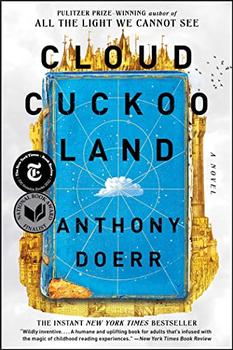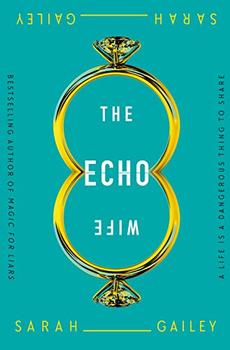Summary | Excerpt | Reading Guide | Reviews | Beyond the book | Read-Alikes | Genres & Themes | Author Bio

A love story, a mystery, a fantasy, a novel of self-discovery, a dystopia to rival George Orwell's - 1Q84 is Haruki Murakami's most ambitious undertaking yet.
The year is 1984 and the city is Tokyo.
A young woman named Aomame follows a taxi driver's enigmatic suggestion and begins to notice puzzling discrepancies in the world around her. She has entered, she realizes, a parallel existence, which she calls 1Q84 - "Q is for 'question mark.' A world that bears a question." Meanwhile, an aspiring writer named Tengo takes on a suspect ghostwriting project. He becomes so wrapped up with the work and its unusual author that, soon, his previously placid life begins to come unraveled.
As Aomame's and Tengo's narratives converge over the course of this single year, we learn of the profound and tangled connections that bind them ever closer: a beautiful, dyslexic teenage girl with a unique vision; a mysterious religious cult that instigated a shoot-out with the metropolitan police; a reclusive, wealthy dowager who runs a shelter for abused women; a hideously ugly private investigator; a mild-mannered yet ruthlessly efficient bodyguard; and a peculiarly insistent television-fee collector.
A love story, a mystery, a fantasy, a novel of self-discovery, a dystopia to rival George Orwell's - 1Q84 is Haruki Murakami's most ambitious undertaking yet: an instant best seller in his native Japan, and a tremendous feat of imagination from one of our most revered contemporary writers.
If you've tried Murakami before and haven't liked his work, you probably won't like this one either. First, it certainly falls squarely in the magical realism genre, and that in itself is a turn-off for many. This is one book that will frustrate those who want everything to make sense and to be neatly wrapped up by its conclusion; it must be approached with abandon, and readers will need to resign themselves to not over think it. But Murakami fans will be absolutely delighted with 1Q84, and I suspect that those readers new to the author who appreciate non-traditional stories and who have the patience to plow through the slow sections will put it at the top of their all-time favorites list. The plot is so unusual, so unlike most of what is currently hitting the shelves that many will ultimately find the novel a joy - and one that will linger in the mind long after the final page is turned...continued
Full Review
(662 words)
This review is available to non-members for a limited time. For full access,
become a member today.
(Reviewed by Kim Kovacs).
Most of Haruki Murakami's novels reference Western music, and 1Q84 is no exception. Czech composer Leoš Janáček's symphonic poem Sinfonietta features prominently throughout.
Leoš Janáček (1854-1928) was born in Hukvaldy, Moravia, in what was once known as the Austrian Empire. He is considered one of the early Czech nationalist composers, following in the footsteps of Bedřich Smetana and Antonin Dvořák (with whom he was close friends).
 Most of his work has its roots in Slavic folk music, although his style is celebrated as highly original. His first compositions were choral, and he is known primarily for his vocal works, including nine operas. Jenůfa (1904), his most celebrated opus...
Most of his work has its roots in Slavic folk music, although his style is celebrated as highly original. His first compositions were choral, and he is known primarily for his vocal works, including nine operas. Jenůfa (1904), his most celebrated opus...
This "beyond the book" feature is available to non-members for a limited time. Join today for full access.

If you liked 1Q84, try these:

by Anthony Doerr
Published 2022
From the Pulitzer Prize-winning author of All the Light We Cannot See, perhaps the most bestselling and beloved literary fiction of our time, comes a triumph of imagination and compassion, a soaring novel about children on the cusp of adulthood in a broken world, who find resilience, hope, and story.

by Sarah Gailey
Published 2022
I'm embarrassed, still, by how long it took me to notice. Everything was right there in the open, right there in front of me, but it still took me so long to see the person I had married.
If we did all the things we are capable of, we would literally astound ourselves
Click Here to find out who said this, as well as discovering other famous literary quotes!